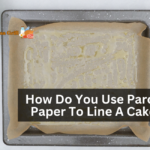Because of its sweet and fragrant flavor, vanilla extract is essential in many recipes, from cakes and cookies to custards and ice creams. However, there are instances when you may find yourself in a bind, staring at an empty bottle of vanilla extract and having no time to make a grocery run. Never fear! In such circumstances, the culinary world offers several substitutes to save the day.
Whether you’re looking for a replacement due to allergies, dietary restrictions, or a lack of availability, several inventive substitutes can impart delectable flavor to your dishes. Let’s explore these alternatives and uncover the wondrous world of vanilla extract substitutes.
What Is Vanilla Extract?
Vanilla bean pods are soaked in a mixture of neutral alcohol and water to produce a vanilla extract, which is used to flavor a variety of foods, primarily baked products, and other sweets. This process imparts the flavor and color of the beans before they are strained out, allowing you to infuse your favored dishes with the exquisite flavor of vanilla.
The extracts produced with the synthetic compound vanillin are known as “imitation vanilla.” There is a substantial difference in flavor, so shelling out more for the genuine article is a flavor investment with a built-in return. In addition, pure extract has the unique ability to enhance the flavor of other ingredients.
Why Substitute?
There are many reasons why people substitute vanilla extract. They may have run out of vanilla extract in the middle of baking or simply appreciate experimenting with various ingredients.
Some people don’t like chemicals that contain alcohol, so they don’t use vanilla extract, which has at least 35% alcohol.
Bakers may also favor a colorless vanilla extract alternative when creating light-colored cakes or frostings. Vanilla extract can tint translucent batters brown, whereas vanilla powder has a more subtle effect on their hue.
Best Substitutes For Vanilla Extract
Here are some best substitutes for vanilla extract :
1. Vanilla Paste
Vanilla or vanilla bean paste is a mixture of sugar, vanilla extract, and vanilla seeds. It has a strong taste and a smooth texture, and you can see the black vanilla seeds in it.
The consistency of vanilla paste is not as dense as its name would suggest. This resembles nectar. According to manufacturers of vanilla paste, extract can be replaced with paste in a 1:1 ratio.
2. Vanilla Powder
Vanilla powder is a fine, light-colored powder composed of ground vanilla beans. As opposed to extract, it does not impart a brown hue to pastries and frostings, which is a popular application. Also more concentrated is vanilla powder. Vanilla extract may evaporate at high temperatures, diminishing baked goods’ flavor.
High temperatures have no impact on vanilla powder. People may use vanilla powder in baking, stir it into cereal or oatmeal, mix it into coffee or hot chocolate, or dust it on granola. When substituting powder for extract, manufacturers of vanilla powder recommend a 1:1 ratio.
3. Vanilla Sugar
Vanilla sugar is sugar that contains vanilla seeds. In contrast to the United States, where it can be difficult to acquire, it is widely utilized in Europe.
Vanilla sugar can be substituted for ordinary sugar when baking. They may also scatter it over freshly baked pies, cookies, and cakes.
In a recipe, substitute vanilla sugar for conventional sugar and omit the vanilla extract.
4. Almond Extract
Almond extract has a stronger nutty flavor than vanilla, making it an excellent addition to certain delicacies. However, excessive use may cause a bitter flavor. French toast, pound cakes, and pastries are typical applications of almond extract. People should use almond extract sparingly due to its potent flavor.
5. Maple Syrup
Pure maple syrup tastes rich and sweet, so it can be used instead of vanilla extract. In addition, it can impart moisture and binding properties to baked products.
Use only genuine maple syrup and not imitation syrup. Because the flavor differs marginally from vanilla extract, people should add it to their liking.
6. Honey
Another liquid sweetener that can be readily substituted for vanilla extract is honey. Although milder than vanilla extract, it will lend flavor to the dish.
Honey is sweeter than the alternatives outlined in this article, so you may need to reduce the quantity of other sugars or sweeteners in your dish to compensate. It is also conceivable that added sugar could alter the final texture of certain dishes.
7. Bourbon, Brandy, Rum, Or Vanilla Liqueur
Spirits such as bourbon, cognac, rum, and vanilla liqueur can replicate vanilla extract’s rich, caramel-like flavor.
2 tsp of alcohol can be used instead of 1 tsp of vanilla extract.
When using these ingredients in recipes for children, pregnant women, or those who do not consume alcohol, caution should be exercised. Some alcohol can be retained in no-bake or minimally-baked foods even though heat destroys the majority of alcohol.
8. Vanilla Flavored Plant-Based Milk
Vanilla-flavored almond, oat, or soy milk can easily be substituted for vanilla extract, although the flavor will be more subdued.
One teaspoon of vanilla extract equals one teaspoon of milk.
9. Herbs And Spices
Vanilla is used to lend complexity to a dish’s flavor. When vanilla cannot be used, it may be best to choose an alternative flavor profile and run with that.
For instance, you could substitute 1–2 tablespoons (15–30 mL) of chai spice instead of vanilla extract in your favorite cookie or pound cake recipe.
Similarly to vanilla, a powdered herb such as lavender imparts floral notes to oatmeal or yogurt.
Even when vanilla is used to enhance the flavor of savory dishes, fragrant spices such as cinnamon and cloves may be able to stand in for it.
Thanks for visiting our site hope you find it helpful..










